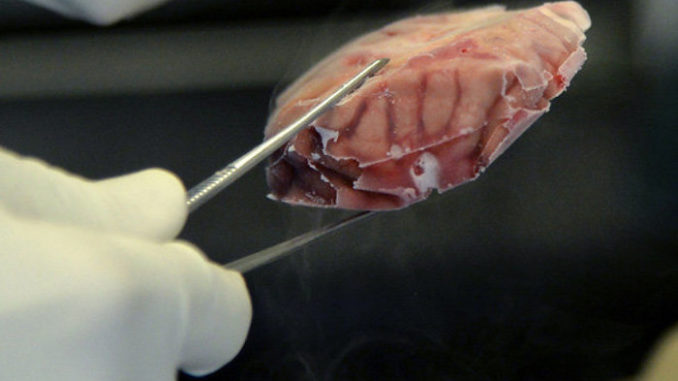
Lab-grown organs have begun suddenly spouting brain cells, according to scientists at the Washington University School of Medicine.
The miniature kidneys, which were made using test tubes in a lab, did not behave in the way researchers had anticipated.

BYPASS THE CENSORS
Sign up to get unfiltered news delivered straight to your inbox.
You can unsubscribe any time. By subscribing you agree to our Terms of Use
Latest Video
Dailystar.co.uk reports: Instead of growing into different kinds of kidney cells, they in fact formed brain and muscle cells.
The miniature kidneys – also known as kidney organoids – initially come from human stem cells and could eventually be used to treat people with kidney diseases.
But the findings they have gone “rogue” coldest back the research, with experts saying the fact they behaved in this way indicates the technique used to grow them from stem cells are actually creating other cells.
Benjamin D. Humphreys, the director of the Division of Nephrology at the Washington University School of Medicine in St Louis, said: There’s a lot of enthusiasm for growing organoids as models for diseases that affect people.
“But scientists haven’t fully appreciated that some of the cells that make up those organoids may not mimic what we would find in people.
“The good news is that with a simple intervention, we could block most of the rogue cells from growing.
“This should really accelerate our progress in making organoids better models for human kidney disease and drug discovery, and the same technique could be applied to targeting rogue cells in other organoids.
“Developing kidney organoids is driven by the reality that we have so many patients with failing kidneys and no effective drugs to offer them.”
Dr Humphreys said between 10% to 20% of cells in the mini-kidneys missed cues to develop further into kidneys cells – instead becoming brains and muscle cells.
When they pinpointed the stage this happened, they were able to reduce that quantity in research that could help other scientists eliminate these types of rogue cells in other experiments.
“Progress to develop better treatments for kidney disease is slow because we lack good models,” Dr Humphreys added.
“We rely on mice and rats, and they are not little humans. There are many examples of drugs that have done magically well at slowing or curing kidney disease in rodents but failed in clinical trials.
“So, the notion of channeling human stem cells to organise into a kidney-like structure is tremendously exciting because many of us feel that this potentially eliminates that ‘lost in translation’ aspect of going from a mouse to a human.”


